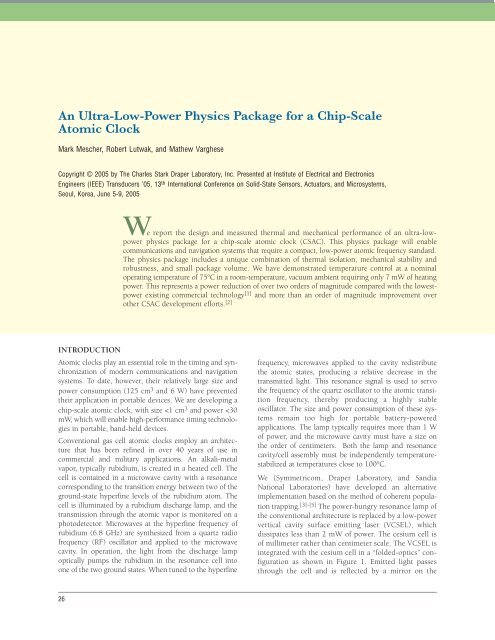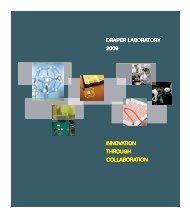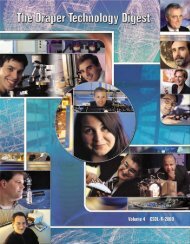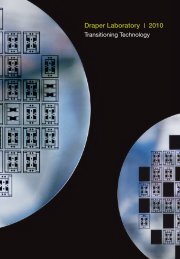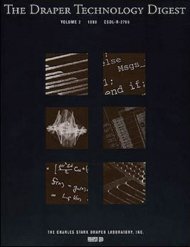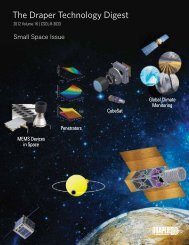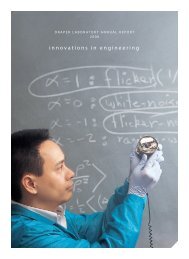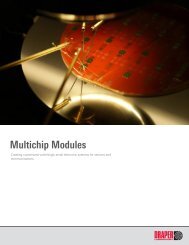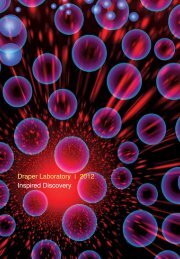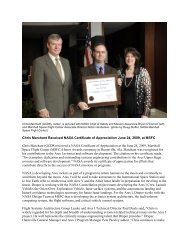TECHNOLOGY DIGEST - Draper Laboratory
TECHNOLOGY DIGEST - Draper Laboratory
TECHNOLOGY DIGEST - Draper Laboratory
Create successful ePaper yourself
Turn your PDF publications into a flip-book with our unique Google optimized e-Paper software.
An Ultra-Low-Power Physics Package for a Chip-Scale<br />
Atomic Clock<br />
Mark Mescher, Robert Lutwak, and Mathew Varghese<br />
Copyright © 2005 by The Charles Stark <strong>Draper</strong> <strong>Laboratory</strong>, Inc. Presented at Institute of Electrical and Electronics<br />
Engineers (IEEE) Transducers ’05, 13 th International Conference on Solid-State Sensors, Actuators, and Microsystems,<br />
Seoul, Korea, June 5-9, 2005<br />
INTRODUCTION<br />
26<br />
We report the design and measured thermal and mechanical performance of an ultra-lowpower<br />
physics package for a chip-scale atomic clock (CSAC). This physics package will enable<br />
communications and navigation systems that require a compact, low-power atomic frequency standard.<br />
The physics package includes a unique combination of thermal isolation, mechanical stability and<br />
robustness, and small package volume. We have demonstrated temperature control at a nominal<br />
operating temperature of 75°C in a room-temperature, vacuum ambient requiring only 7 mW of heating<br />
power. This represents a power reduction of over two orders of magnitude compared with the lowestpower<br />
existing commercial technology [1] and more than an order of magnitude improvement over<br />
other CSAC development efforts. [2]<br />
Atomic clocks play an essential role in the timing and synchronization<br />
of modern communications and navigation<br />
systems. To date, however, their relatively large size and<br />
power consumption (125 cm3 and 6 W) have prevented<br />
their application in portable devices. We are developing a<br />
chip-scale atomic clock, with size


